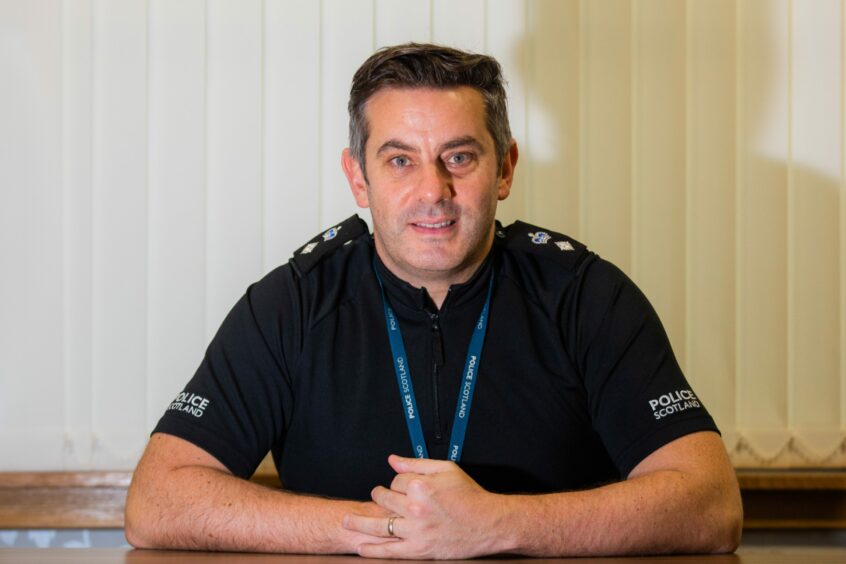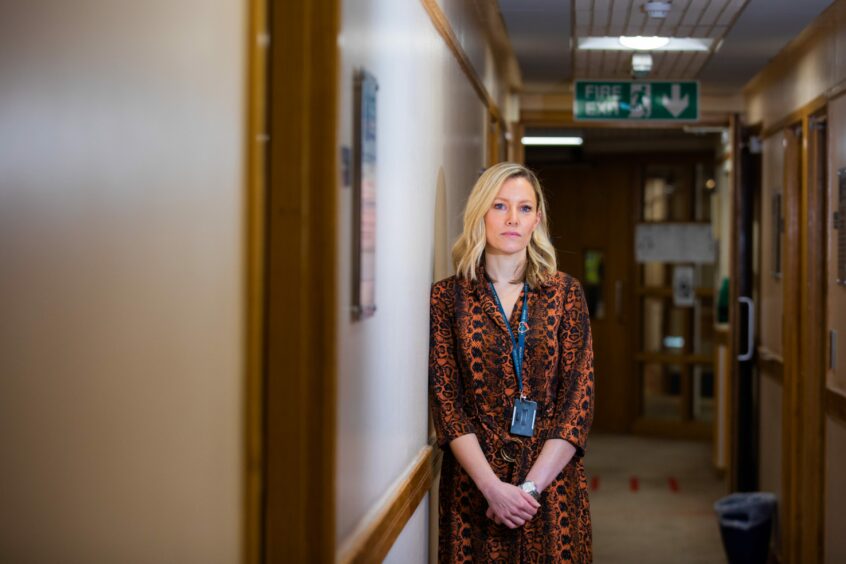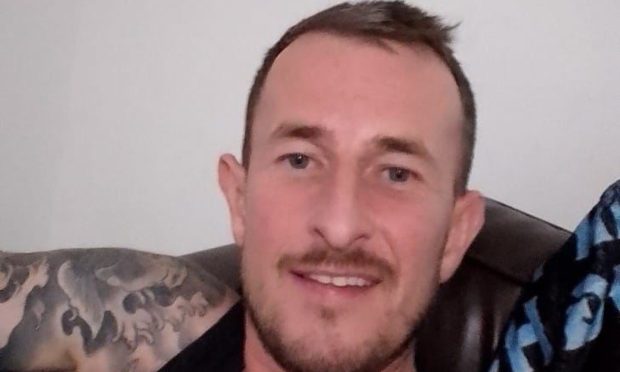Rape and sexual assault victims in Fife have been assured their abusers will be “relentlessly hunted down” and brought to justice after it emerged Kingdom detectives secured 112 years’ worth of jail sentences in 18 months.
Sexual offending rates in Fife are the highest in Scotland according to Police Scotland’s latest quarterly figures but detection rates – the proportion of crimes being solved – are also among the highest in the country.
Detectives leading the rape and historic abuse investigation teams in Fife say a factor in the high reporting of sexual crimes is their proactive work in profiling known sex offenders and contacting other potential victims.
They also highlight strong publicity around a string of major convictions in recent months has led to many survivors – either those abused by the same person or someone else – feeling more confident they will be believed and coming forward in numbers.
Building strong relationships with other agencies, such as Women’s Aid and the Kirkcaldy-based Fife Rape and Sexual Abuse Centre (FRASAC), has also been critical in helping survivors through the difficult process of reporting and reliving their horrific experiences.
‘Relentless pursuit’ of offenders
Chief Superintendent Derek McEwen, Fife’s divisional commander, said a “growing culture” of female detectives working in their public protection departments is also helping catch those responsible.
He said: “There are bad people out there who have done horrendous things and sadly, will continue to do horrendous things but I think the most important message for the public is that Fife division will continue to target those individuals.
“We will be relentless in our pursuit of these individuals and anybody that’s involved in that type of offending – predominantly male on female offending.
“They should be aware that if they do choose to carry out a criminal act, whatever fashion it may be, whether a sexual or violent offence or drug spiking, if that complaint is brought to the police we will relentlessly hunt them down.”
Recent major convictions
Detective Inspector Graeme Dursley leads Fife division’s rape investigation unit and has worked on historic abuse cases which typically involve adult survivors reporting crimes which happened to them as children.
He said in the past 18 months, Fife’s public protection teams have secured 14 major convictions, which resulted in sentences ranging from 14 years to one year in prison, with a combined sentencing total of 112 years for cases of this type.
Among them was Fife athletics coach, Eric Simpson, who was jailed for eight years in September for raping a girl and indecently assaulting four others.
He was described by a judge as “monstrous” and a “Jekyll and Hyde character.”
He had denied the crimes but was found guilty of seven offences against children and young women over nearly 18 years.
Former teacher Simpson had spent decades volunteering as an athletics coach in the Dundee and Fife areas and was suspended when the allegations surfaced.
DI Dursley said one woman had recently contacted him to report possible abuse by someone else also involved in athletics, after seeing his comments in a police press release following Simpson’s sentencing.
“Not only did the press release on this go out saying ‘this is good, look what we’ve managed to do for these victims,’ but it’s saying to other people ‘these people have been believed’.
“It could lead to an investigation into someone else that’s responsible for abuse and that’s happening more often now.
“Over the last 18 months we’ve had a lot of good results and have been really pushing the media releases when we get these convictions to try and encourage people to come forward.”
Taking predators off the streets
In December, violent Fife rapist Garry Martin, who inflicted a catalogue of cruelty and abuse against women, children and animals spanning nearly three decades, was given an extended sentence of 14 years and a determinate sentence of four years in prison.
Martin, from Kirkcaldy, was found guilty of 19 offences of rape, indecent assault and conduct, assault and ill-treatment of dogs.
Another successful conviction was that of Dean Stevens, who tried to rape a 25-year-old woman in a terrifying early morning attack in Dunfermline’s Pittencrieff Park in May 2020.
He was given an Order for Lifelong Restriction with a minimum sentence of two years and three months in prison.
The restriction means he will stay in prison until the parole board deem it safe for him to be released and if he is freed, will remain under intense supervision.
Profiling sex offenders
Detective Chief Inspector Kelly McEwan leads Fife’s public protection unit which covers their rape, child abuse and historic child abuse and domestic abuse departments.
She said: “We have seen an increase in reporting of sexual abuse and my understanding is that’s replicated across the country.
“There are a variety of reasons for that.
“We are confident the success of some of our recent convictions and the publication of that has given people the confidence to come forward.
“But we also do a lot of proactive work as part of our investigations, whereby we look at an offender’s history and identify other potential victims that maybe haven’t come forward and if it’s appropriate, we would make an approach that often results in disclosures that might otherwise have been unreported.
“We make sure we explore every opportunity and that’s one of them.”
DCI McEwan highlighted the importance of police making use of domestic abuse disclosure scheme legislation – brought in six years ago to allow people to ask about a partner’s past – to proactively identify people who might be at risk of abuse.
This, she says, can often result in people coming forward further down the line.
DCI McEwan also believes recent high-profile cases in the media and the emergence of the #metoo movement has been a factor in terms of higher reporting of sexual crimes.
She also flagged the success of Police Scotland’s ‘Don’t be that Guy’ campaign which essentially challenges outdated male views on sexual entitlement and how that can lead to sexual violence.
How to report a sex crime
There are various ways to report sex crimes.
- Visit a police station or call 101. An officer will carry out an initial briefing report before a sexual offences liaison officer is allocated, depending on the nature of the offence.
- Contact one of the partner agencies – FRASAC or Women’s Aid – who can initially provide the right support and also liaise with police.
Anonymity is maintained for all victims throughout the reporting process.
Mr McEwan says police officers in their public protection unit have specialist training in taking a trauma-informed approach to speaking with victims of sexual abuse and rape.
“We would encourage anyone who has been a victim of abuse to come forward.
“They will be supported and their report will be taken seriously and will be investigated to the fullest.
“It doesn’t matter how long ago the abuse took place, we would encourage people to come forward and we acknowledge that sexual and domestic abuse is vastly under reported.
“We’ve had a lot of successful convictions in Fife, quite a lot of notable ones recently and I think that has given people the confidence to come forward.”
Survivor-centred approach
He added: “Whatever someone wants to report, we will be guided by them.
“Allow us, if nothing else, to open the door to some of the support networks that are out there for you.
“Nobody should suffer in silence and just because you come to the police does not automatically mean we will arrest someone or kick a door in.
“We will take this at a pace comfortable to that individual in the hope they get the support they need and we also get the opportunity to target the individual that’s doing something so horrific.
“We are very successful at bringing people to court, arresting and charging them and we will continue to do that.
“We also need to know about the behaviours of individuals out in the community.
“Sometimes if someone comes forward and tells us about inappropriate behaviour by an individual towards them, whether a criminal offence or not, when we actually check our databases, other people have perhaps come forward.”
















